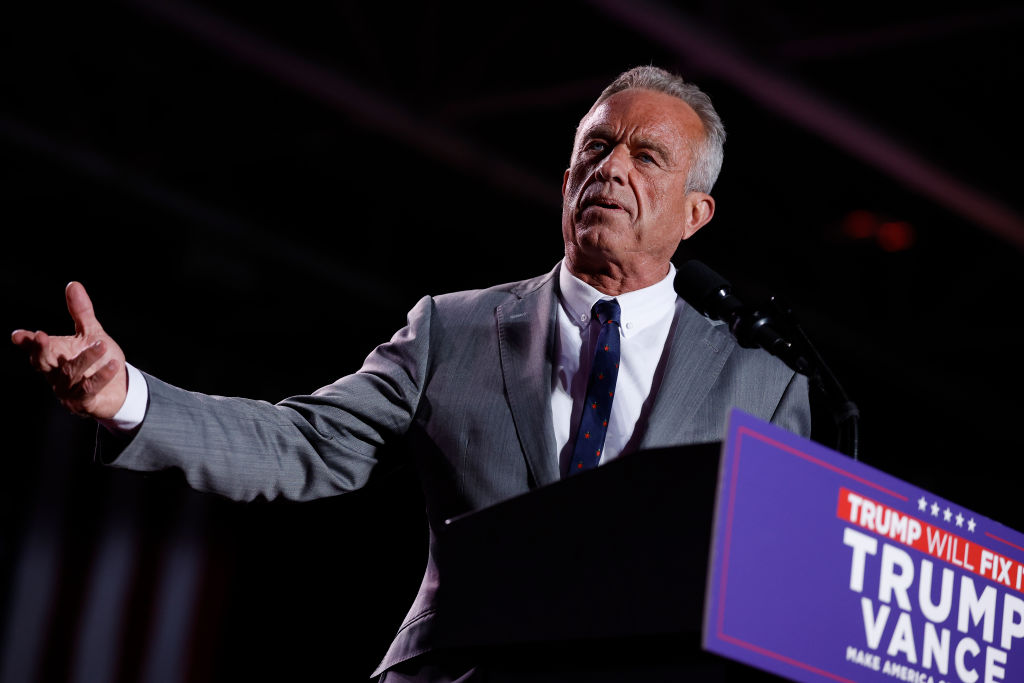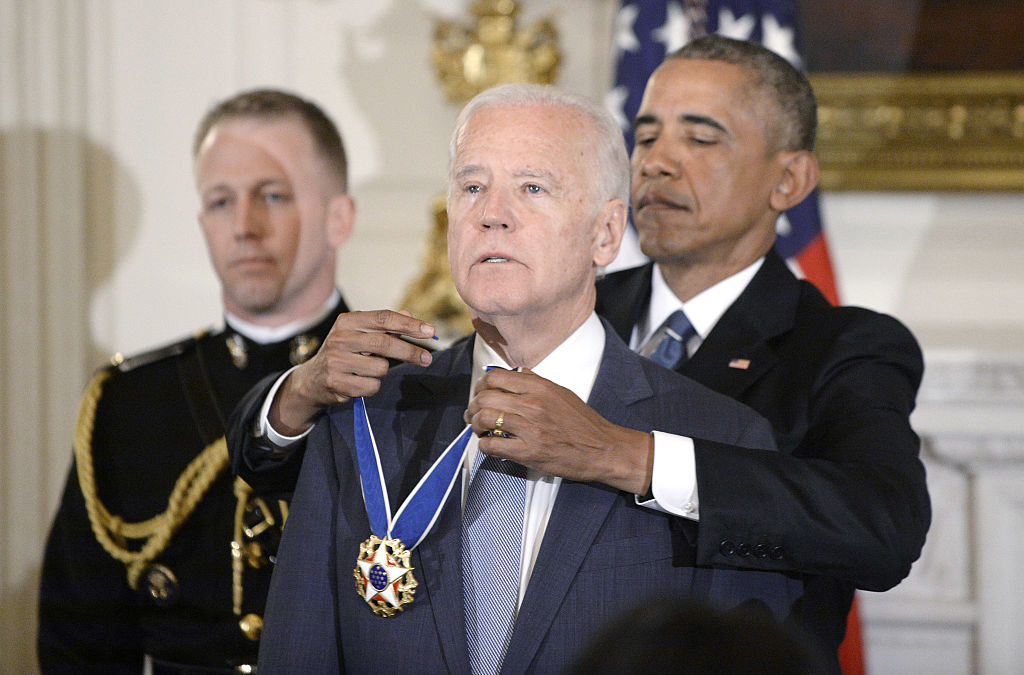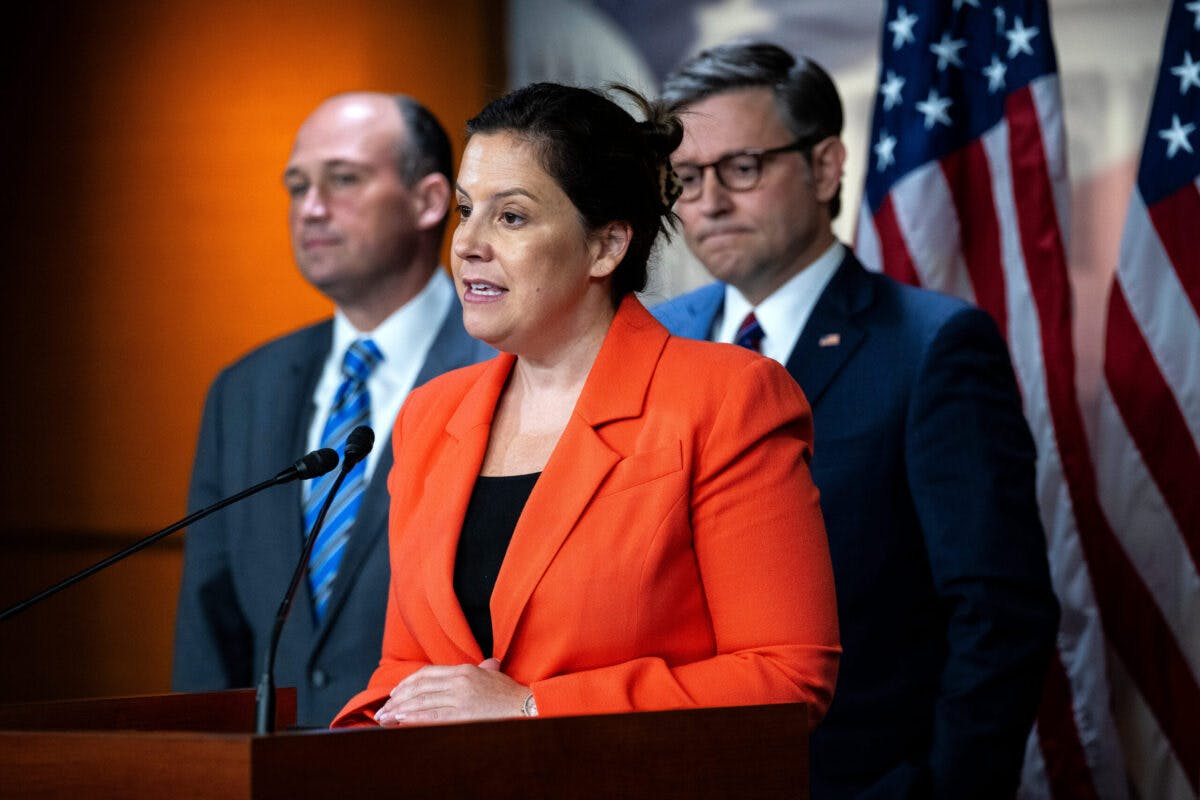It’s MAHA Time: Trump Picks RFK Jr.
As Senator John Fetterman of Pennsylvania says, Donald Trump is doing some “God-tier level trolling.” Many of the picks he is currently making are both hilarious and kind of wonderful. Yesterday, Trump made a bunch of controversial picks. His most controversial pick, however, was Robert F. Kennedy Jr. to lead the Department of Health and ...

As Senator John Fetterman of Pennsylvania says, Donald Trump is doing some “God-tier level trolling.” Many of the picks he is currently making are both hilarious and kind of wonderful.
Yesterday, Trump made a bunch of controversial picks. His most controversial pick, however, was Robert F. Kennedy Jr. to lead the Department of Health and Human Services (HHS).
RFK Jr., of course, ran as a Democrat in 2024, and then was basically ousted from the primaries in favor of Joe Biden. Because the Democratic Party said, “No. No one will run against Joe Biden. He’s too great and important a president.” And then, of course, they took Biden and tossed him off the back of a train when he died on stage in a debate versus Donald Trump.
So, RFK Jr. immediately flipped. First, he became an independent, and then he finally ended up endorsing Trump. Now, he’s the leader of the so-called “Make America Healthy Again” (MAHA) movement, which is a great purpose for RFK Jr.
WATCH: The Ben Shapiro Show
We had him as a guest on our show The Sunday Special and he talked extensively about his purpose in making America healthy again. He said, “Listen, many of the biggest issues facing the American people are issues that none of our politicians talk about. Our politicians will talk about tax policy. They’ll talk about whether to drill or not to drill, but then never talk about the fact that the American people are increasingly unhealthy.”
RFK Jr. went on to say, “If I were in government, my number one job would be to make the American people healthy again. There are a bunch of substances that are in our food and our drink that are banned in Europe and that are replete in all of our products, and they are making us fatter.”
And, by the way, he’s not wrong about this.
Today, The New York Times published an article titled “Three-Quarters of U.S. Adults Are Now Overweight or Obese.”
This has some downstream effects. Because, as it turns out, when you hear statistics about American life expectancy flatlining, about the fact that people are getting high rates of chronic diseases in the United States, that’s because of what we are eating, what we’re drinking, and because we never exercise. There are comparable places around the Earth that have higher life expectancies than we do, and that is not because of our medical system.
It is not because American doctors are worse or American hospitals are worse or anything remotely like that. When somebody in Europe has cancer, they’re coming to the United States for treatment. The reality is that it’s not our medical system, per se, that’s broken. Our medical insurance system is broken. Our medical system is not broken. The thing that is broken is our health care system.
According to The New York Times:
Nearly three-quarters of U.S. adults are overweight or obese, according to a sweeping new study. The findings have wide-reaching implications for the nation’s health and medical costs as it faces a growing burden of weight-related diseases.
The study, published on Thursday in The Lancet, reveals the striking rise of obesity rates nationwide since 1990 — when just over half of adults were overweight or obese — and shows how more people are becoming overweight or obese at younger ages than in the past. Both conditions can raise the risk of diabetes, high blood pressure and heart disease, and shorten life expectancy.
Without aggressive intervention, they forecast, the number of overweight and obese people will continue to go up — reaching nearly 260 million people in 2050.
The paper defined “overweight” adults as those who were age 25 and over with a body mass index at or over 25, and “obese” adults as those with a B.M.I. at or over 30.
Now, again, there are a number of things the pharmaceutical industry is attempting to do in order to walk that back. Ozempic would be the most obvious example. But if you can take preventative measures so kids aren’t obese at age seven — and if that means that we look for different solutions inside the FDA or inside the NIH or inside HHS — generally, that’s a good thing.
Here, for example, was RFK Jr. talking about the sort of products and services that are available to Americans that are not available in other places, because, as he says, the food industry has a giant lobbying arm, which is true.
The Democrats, who claim to be all about health care have stood by watching other countries ban these poisons that make our kids sick. Enough is enough. President Trump and I are going to stop the mass poisoning of American children. pic.twitter.com/Rf04MrF9e8
— Robert F. Kennedy Jr (@RobertKennedyJr) September 25, 2024
So, there’s nothing wrong with the general mission there. How it actually gets applied in real life is going to be the big question. I’m sure much of that will come up in a confirmation hearing. How much power should the HHS have to outright ban things in your food? How much power should the HHS have, for example, to hold up new drugs?
One of the big problems in the United States is that it is very difficult to get a new pharmaceutical product approved and very expensive. That’s the reason why pharmaceuticals are so expensive when it comes to the consumer level, because it’s not just the R&D you have to do to develop a drug. It’s also that you then have to go through an extraordinarily rigorous process that very often is replete with red tape. So there are a bunch of problems inside FDA, inside NIH. Many of the studies that are being promulgated by NIH are just crap. They’re terrible. There’s a lot to do. There’s a lot of deadwood to clear out right there.
It’ll be fascinating to see how RFK Jr. does all of that. Obviously, he’s a trial lawyer and very often the mentality of a trial lawyer is to find the vulnerability of a particular product to cause causation of a health problem. So if there’s even a remote causative effect of some sort of product on somebody’s health, then you can sue based on that and you make a lot of money if you’re a trial lawyer.
However, is that enough of a standard to ban it, or are we going to get more advisory opinions? Right. None of this is particularly clear at this point.
What is clear, though, is that refocusing America on being healthier while also allowing for more innovation in a lot of these areas would definitely be a good target goal.
And I think that’s what President Trump wants.
Originally Published at Daily Wire, World Net Daily, or The Blaze
What's Your Reaction?

































































































